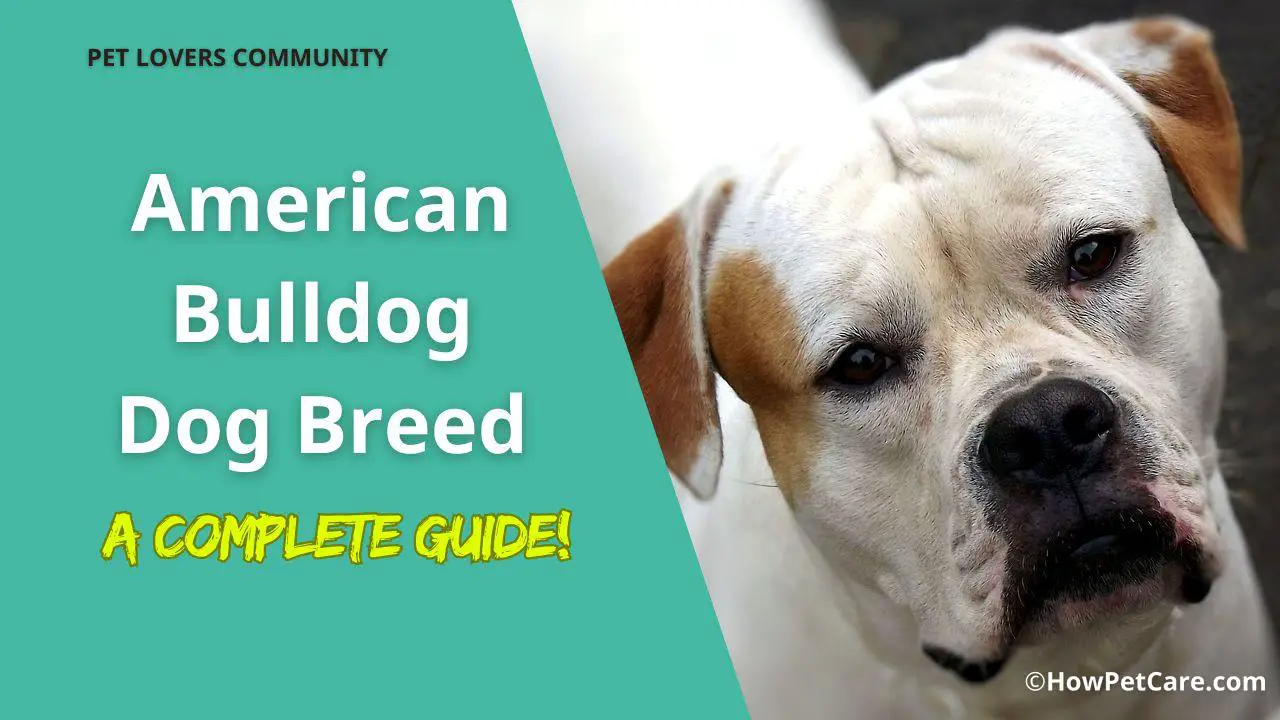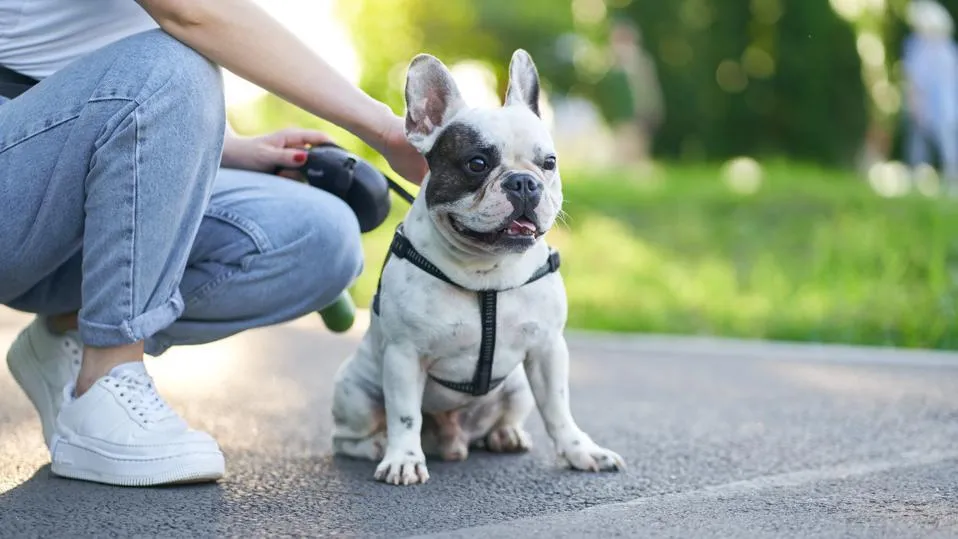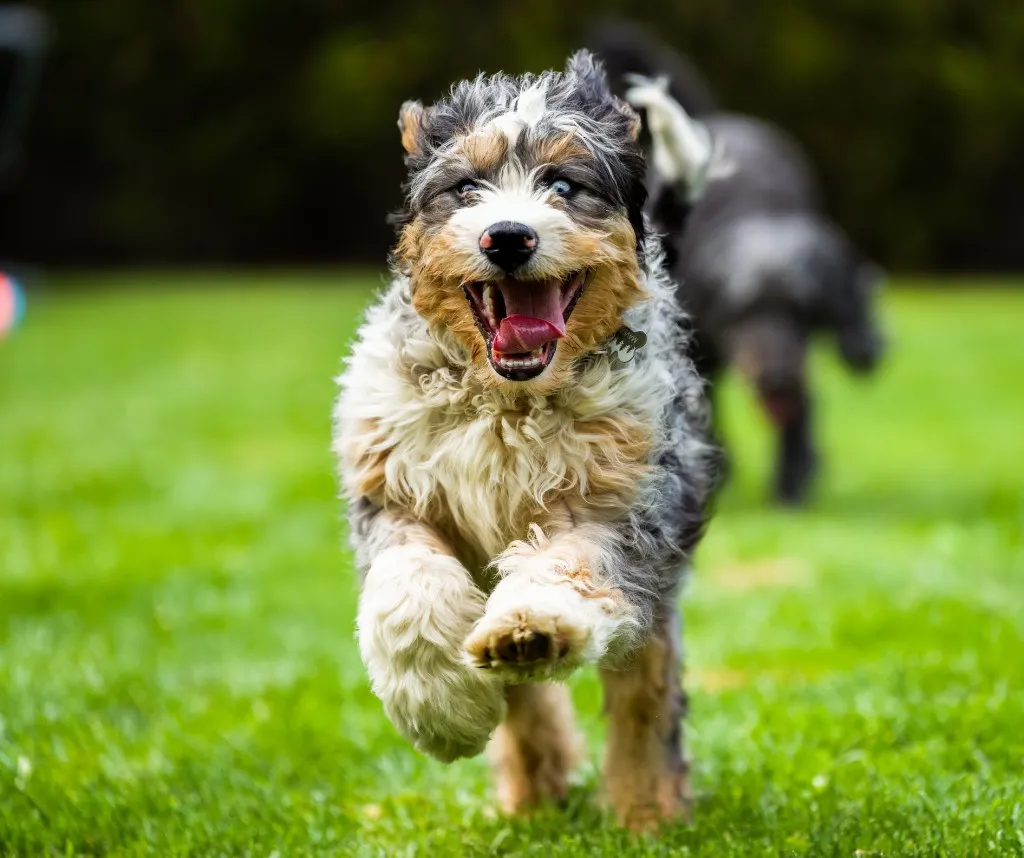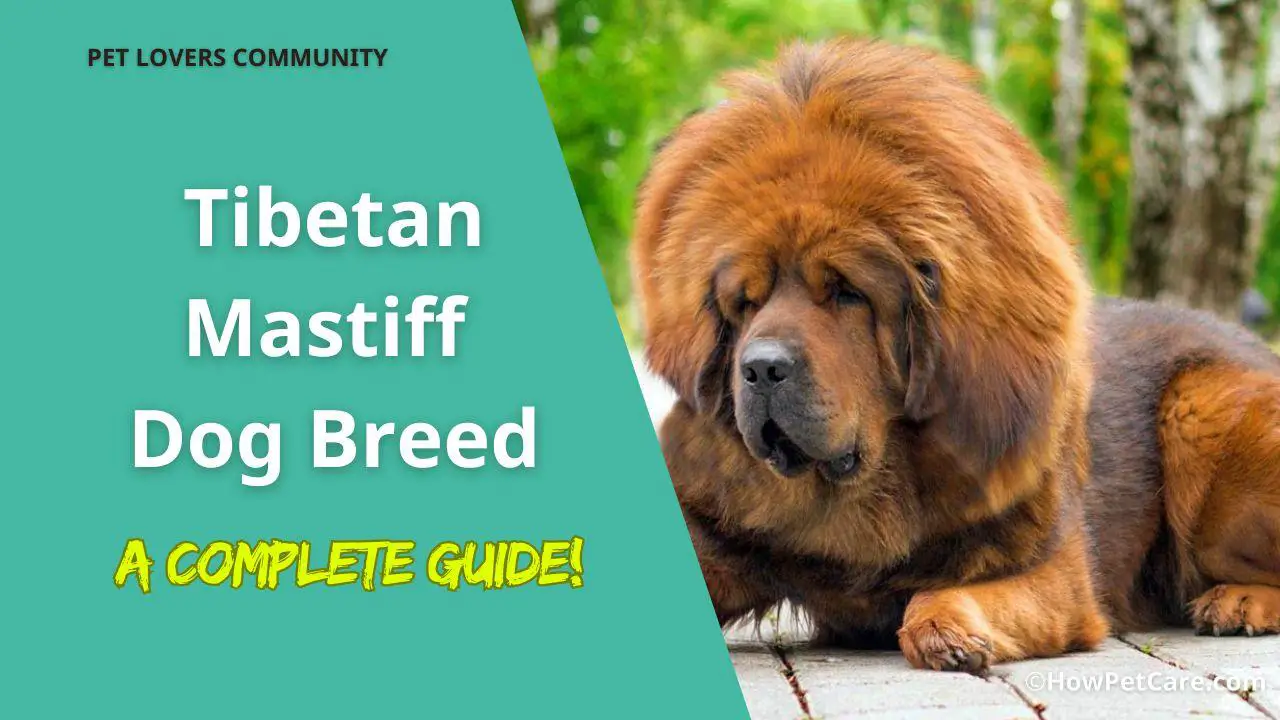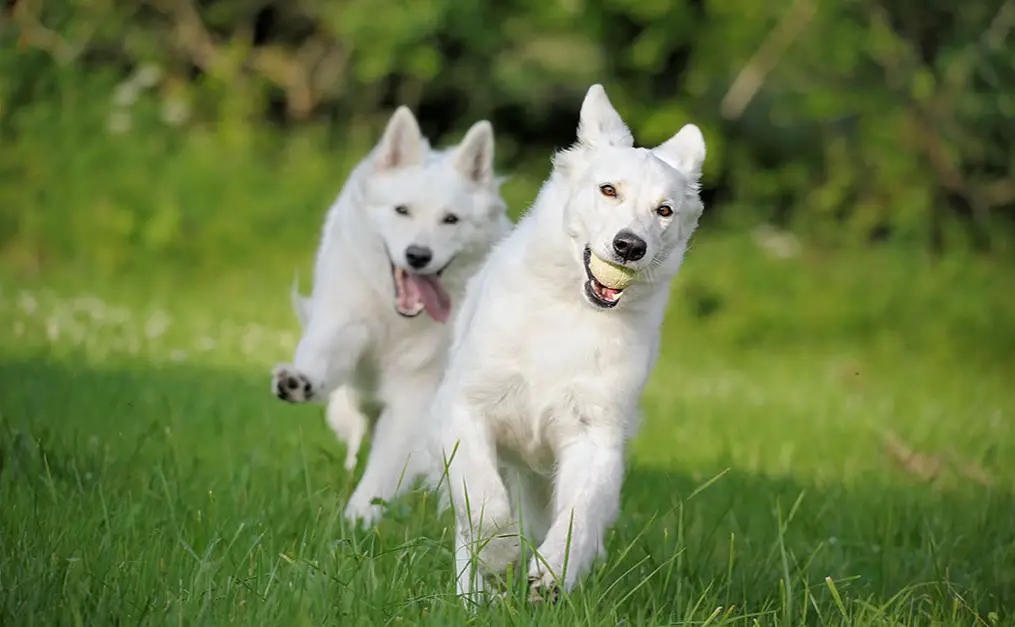The American Bulldog is a breed that captures hearts with its powerful presence and unwavering loyalty.
As a proud owner of two American Bulldogs myself, I can attest to their incredible charm and devotion.
These muscular giants may look intimidating at first glance, but they’re really just big softies at heart.
In this comprehensive guide, we’ll explore everything you need to know about this remarkable breed, from their fascinating history to expert care tips.
Whether you’re considering adding an American Bulldog to your family or simply curious about these lovable powerhouses, you’re in for a treat!
The Rich History of the American Bulldog
The American Bulldog’s story is one of resilience and adaptability.
These dogs trace their roots back to the working bulldogs of England, brought to America by immigrants in the 17th and 18th centuries.
Initially used for farm work and hunting, they nearly went extinct during World War II.
Thankfully, a few dedicated breeders worked tirelessly to preserve the breed.
John D. Johnson and Alan Scott played pivotal roles in reviving the American Bulldog.
Their efforts led to two distinct types:
- The Johnson type: Larger and more massive
- The Scott type: Slightly smaller and more athletic
Today, you’ll find American Bulldogs that fall somewhere between these two types, combining the best of both worlds.
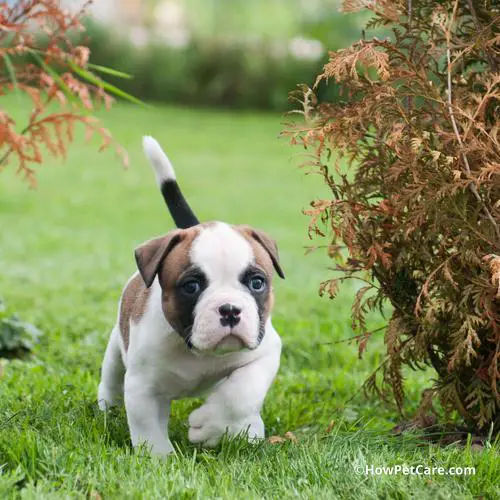
Physical Characteristics That Stand Out
When you see an American Bulldog, you can’t help but be impressed by their physical presence.
These dogs are the epitome of strength and agility.
Here’s what makes them so distinctive:
Size and Build
- Males typically stand 22-27 inches tall and weigh 75-125 pounds
- Females are usually 20-25 inches tall and weigh 60-100 pounds
- Muscular, athletic build with a broad chest and powerful legs
Coat and Colors
- Short, smooth coat that’s easy to maintain
- Colors range from solid white to brindle, with various patterns in between
- Common colors include white with patches of red, brindle, or black
Facial Features
- Large, square head with a short, broad muzzle
- Strong jaw with an undershot or level bite
- Expressive eyes that can melt your heart in an instant
I remember the first time I saw my American Bulldog, Max, as a puppy.
His wrinkly face and big, curious eyes stole my heart immediately.
Now, at 5 years old, he’s grown into a magnificent 110-pound gentle giant who still thinks he’s a lap dog!
The Lovable Temperament of American Bulldogs
Don’t let their imposing appearance fool you – American Bulldogs are big softies with hearts of gold.
Their temperament is one of the reasons they’ve become such beloved family pets.
Here’s what you can expect from these gentle giants:
Loyalty and Affection
American Bulldogs are incredibly devoted to their families.
They form strong bonds and will go to great lengths to protect their loved ones.
My American Bulldog, Luna, once alerted us to a small kitchen fire by barking persistently – a true hero!
Intelligence and Trainability
These dogs are smart cookies and eager to please.
With consistent training and positive reinforcement, they can excel in obedience and even complex tasks.
However, they can be a bit stubborn at times, so patience is key.
Social Nature
Despite their intimidating appearance, most American Bulldogs are social butterflies.
They generally get along well with children and other pets when properly socialized.
My two American Bulldogs, Max and Luna, are the life of the party at our local dog park!
Energy Levels
While not as high-energy as some working breeds, American Bulldogs do require regular exercise.
They enjoy long walks, playtime in the yard, and even swimming (with supervision, of course).
Caring for Your American Bulldog
Owning an American Bulldog is a rewarding experience, but it does come with responsibilities.
Here’s what you need to know to keep your furry friend happy and healthy:
Nutrition
- Feed a high-quality diet appropriate for their age and activity level
- Monitor portions to prevent obesity, which can strain their joints
- Divide meals into 2-3 servings per day to prevent bloat
Exercise
- Aim for at least 1-2 hours of exercise daily
- Mix up activities: walks, fetch, tug-of-war, or even agility training
- Mental stimulation is just as important as physical exercise
Grooming
- Brush their short coat weekly to remove loose hair
- Bathe only when necessary to preserve natural oils
- Clean wrinkles and skin folds regularly to prevent infections
Health Considerations
American Bulldogs are generally healthy, but they can be prone to certain conditions:
- Hip dysplasia
- Elbow dysplasia
- Cherry eye
- Allergies
Regular check-ups with your veterinarian are crucial for early detection and prevention.
Training Your American Bulldog: Tips for Success
Training an American Bulldog can be a rewarding experience, but it requires consistency and patience.
Here are some tips to help you succeed:
- Start early: Begin socializing and training as soon as you bring your puppy home
- Use positive reinforcement: Reward good behavior with treats, praise, and play
- Be consistent: Establish clear rules and stick to them
- Keep sessions short: American Bulldogs can have a short attention span, so aim for 10-15 minute sessions
- Socialize extensively: Expose your dog to various people, animals, and environments
Remember, every dog is unique.
What works for one American Bulldog may not work for another, so be prepared to adapt your approach.
The American Bulldog in Popular Culture
These charismatic dogs have made their mark in popular culture:
- Chance from the movie “Homeward Bound” was an American Bulldog
- The mascot for Mack Trucks is an American Bulldog named Mack
- They’ve appeared in various TV shows and commercials, showcasing their versatility
Is an American Bulldog Right for You?
While American Bulldogs make wonderful companions, they’re not for everyone.
Consider these factors before bringing one into your home:
- Space: They need room to move and play
- Time: They require attention, exercise, and training
- Experience: They can be strong-willed, so some dog experience is helpful
- Lifestyle: They thrive on human companionship and don’t do well when left alone for long periods
If you can provide a loving home with plenty of exercise and attention, an American Bulldog might just be your perfect match.
In conclusion, the American Bulldog is a remarkable breed that combines strength, loyalty, and affection in one impressive package.
From their fascinating history to their lovable personalities, these dogs have so much to offer the right owner.
Whether you’re looking for a loyal companion, a gentle family pet, or an impressive guardian, the American Bulldog might just be the breed you’ve been searching for.
Remember, owning any dog is a big responsibility, but with the right care and training, an American Bulldog can become a cherished member of your family for years to come.
So, are you ready to welcome an American Bulldog into your life?
Share your thoughts and experiences in the comments below!
And if you found this guide helpful, don’t forget to share it with other dog lovers who might be considering this amazing breed.
Breed information
| Characteristic | Information |
|---|---|
| Breed Name | American Bulldog |
| Origin | United States |
| Group | Working Group (Not AKC recognized, but recognized by other registries such as UKC) |
| Height | Males: 22-27 inches (56-69 cm); Females: 20-25 inches (51-64 cm) |
| Weight | Males: 75-100 pounds (34-45 kg); Females: 60-85 pounds (27-39 kg) |
| Coat | Short, smooth, and close-lying coat |
| Colors | White, or white with patches of brindle, black, red, brown, or tan |
| Lifespan | 10-15 years |
| Temperament | Loyal, confident, protective, and affectionate with family; known for their bravery and friendly disposition |
| Energy Level | High energy; needs regular physical activity and mental stimulation |
| Exercise Needs | High exercise needs; requires daily walks, runs, and playtime to stay healthy and happy |
| Trainability | Intelligent and eager to please, but can be stubborn; responds best to positive reinforcement and early, consistent training |
| Intelligence | Highly intelligent, known for their problem-solving skills |
| Good with Children | Excellent with children; patient and protective, making them great family dogs |
| Good with Other Pets | Can be good with other pets, especially if raised with them, but may show dominance or territorial behavior with unfamiliar animals |
| Shedding | Moderate shedding; regular brushing can help minimize loose hair |
| Grooming Needs | Low grooming needs; occasional bathing and regular brushing to maintain coat health |
| Barking Level | Moderate; they will bark to alert but are generally not excessive barkers |
| Space Requirements | Best suited for homes with a yard; adaptable to apartment living if they get sufficient daily exercise |
| Socialization | Needs early socialization to prevent any aggressive or overprotective tendencies towards strangers and unfamiliar dogs |
| Health Issues | Prone to hip dysplasia, elbow dysplasia, cherry eye, allergies, and thyroid disorders |
| Diet | Requires a balanced, high-protein diet to support their active lifestyle; portion control is important to prevent weight gain |
| Affection Level | Very affectionate with family; thrives on attention and being involved in family activities |
| History | Descended from Old English Bulldogs brought to America by settlers; historically used for farm work, guarding, and hunting |
| AKC Recognition | Not recognized by the American Kennel Club, but recognized by the United Kennel Club (UKC) |
| Ideal Living Conditions | Best suited for active families with access to outdoor space; needs room to run and play |
| Notable Characteristics | Known for their muscular build, strong jaw, and athleticism combined with a loving and loyal temperament |
| Best Activities | Enjoys physical activities such as running, hiking, agility training, and fetch; excels in canine sports and obedience training |
| Suitability for First-Time Owners | Suitable for first-time owners if they are experienced with training and providing adequate exercise |
| Protective Nature | Highly protective of family and home, making them excellent watchdogs and guard dogs |
| Playfulness | Very playful, especially with family members and children; enjoys interactive games and physical activities |
Sources:
- American Bulldog Association: American Bulldog Information
- DogTime: American Bulldog Breed Information
- United Kennel Club: American Bulldog Breed Standard

